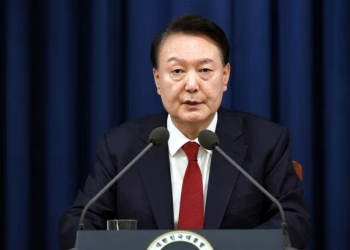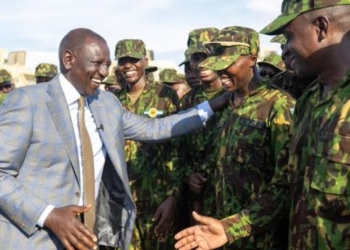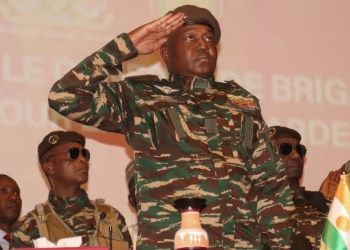Mexican President Claudia Sheinbaum has seemingly contradicted President-elect Donald Trump’s claim that they had reached an agreement to halt migration to the US border.
Following a phone conversation on Wednesday, Trump posted on social media, stating, “She has agreed to stop migration through Mexico, and into the United States, effectively closing our Southern Border.”
However, Sheinbaum quickly responded, emphasizing that Mexico’s stance was not to close its borders but to address migration in a way that respects human rights.
Earlier in the week, Trump raised concerns among US trading partners, vowing to impose a 25% tariff on Mexico and Canada and a 10% tariff on China upon taking office in January. Trump said the tariffs on Mexico and Canada would remain until illegal immigration and drug trafficking were halted, while tariffs on China would persist until the country cracked down on fentanyl smuggling.
In response, Sheinbaum warned that Mexico would retaliate with tariffs of its own if the US moved forward with the trade war. “If there are US tariffs, Mexico would also raise tariffs,” she stated at a press conference.
Mexican Economy Minister Marcelo Ebrard joined Sheinbaum in condemning Trump’s proposed tariffs, calling them a “shot in the foot” and suggesting that the tariffs violated the US-Mexico-Canada Agreement (USMCA) signed by Trump in 2018.
After the phone call with Trump, Sheinbaum initially described their conversation as “excellent” on social media, mentioning that they had discussed Mexico’s strategy on migration. She explained that migrant caravans were not reaching the northern border because they were being managed within Mexico.
However, Trump later posted on Truth Social with a different interpretation, claiming that Mexico would “stop people from going to our Southern Border, effective immediately.” In response, Sheinbaum clarified that she had explained Mexico’s “comprehensive strategy” on migration, emphasizing that the country was committed to addressing the issue while respecting human rights. She reiterated that Mexico’s position was not to close its borders, but to foster cooperation between governments and peoples.
Meanwhile, Canadian Prime Minister Justin Trudeau held an emergency meeting with provincial leaders to discuss the potential impact of Trump’s tariff threat. Finance Minister Chrystia Freeland announced that Canada would present a united front on the matter. However, Alberta Premier Danielle Smith expressed concerns about whether Trudeau was the best person to lead negotiations with Trump, given the personal tensions between the two leaders.
As for China, authorities have yet to directly comment on Trump’s 10% tariff threat, though a Chinese embassy official in Washington warned that no one would benefit from a trade war.
Illegal immigration became a key issue in the 2024 US presidential race, which saw Trump secure a decisive victory. Trump campaigned on a promise to seal the US-Mexico border, a challenge that outgoing President Joe Biden attempted to address by imposing stricter border controls, resulting in a sharp decline in illegal crossings.
Under US pressure, Mexico has been conducting its largest-ever migrant crackdown, including bussing and flying non-Mexican migrants to the southern part of the country, far from the US border. This tactic has led many migrants to give up on their journey, with some voluntarily requesting to be deported back to their home countries.
When Trump assumes office, he will inherit a situation where fewer undocumented migrants are being apprehended at the US southern border than at any other time in the past four years.















